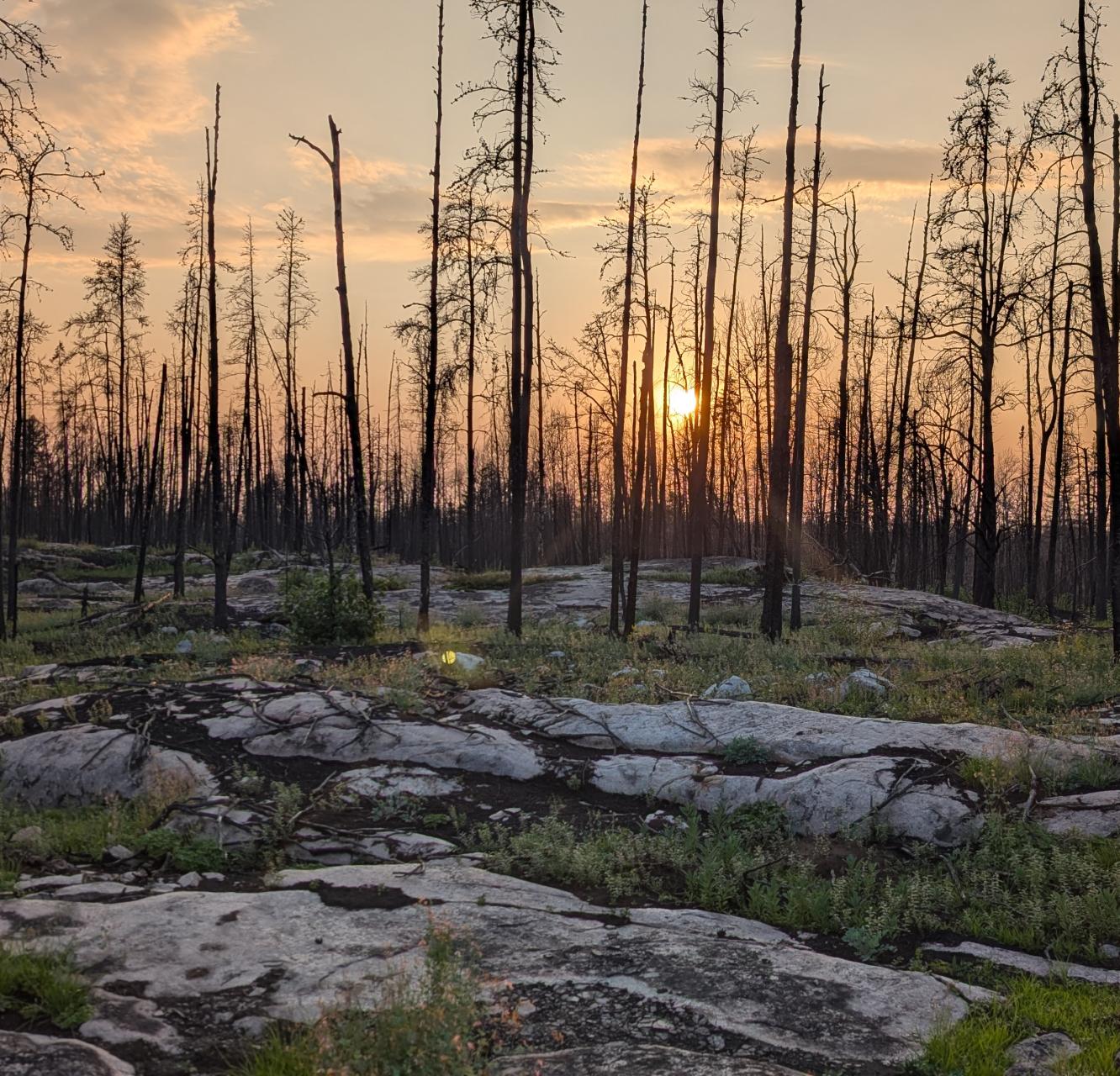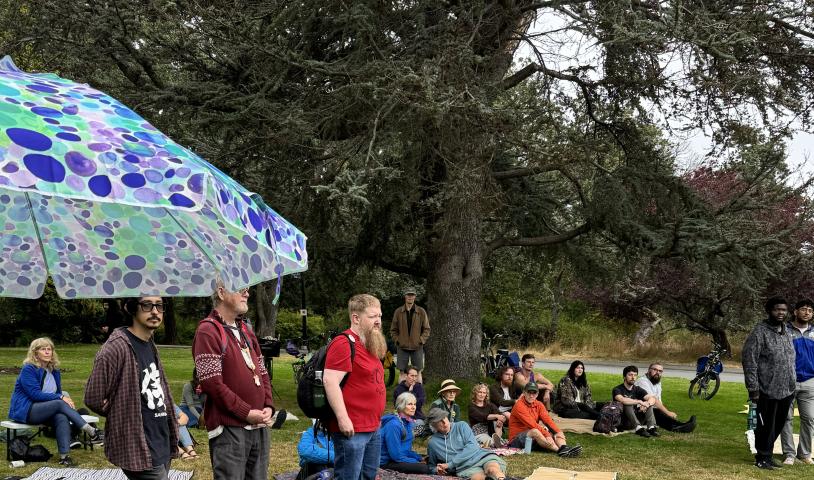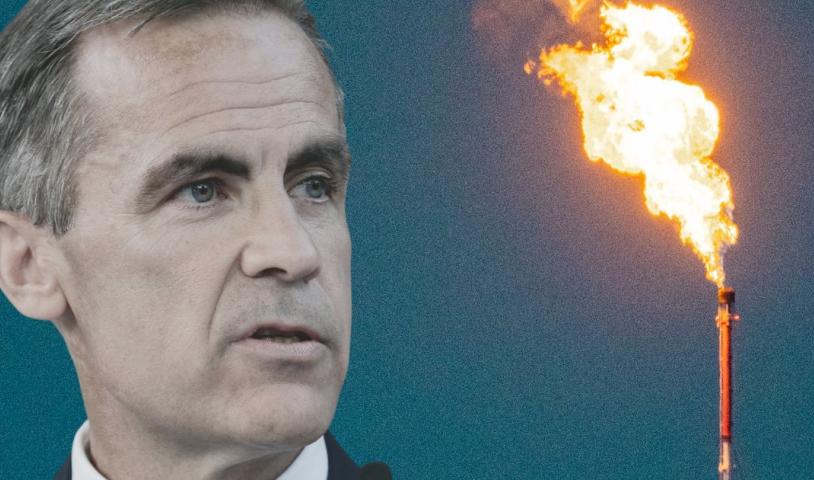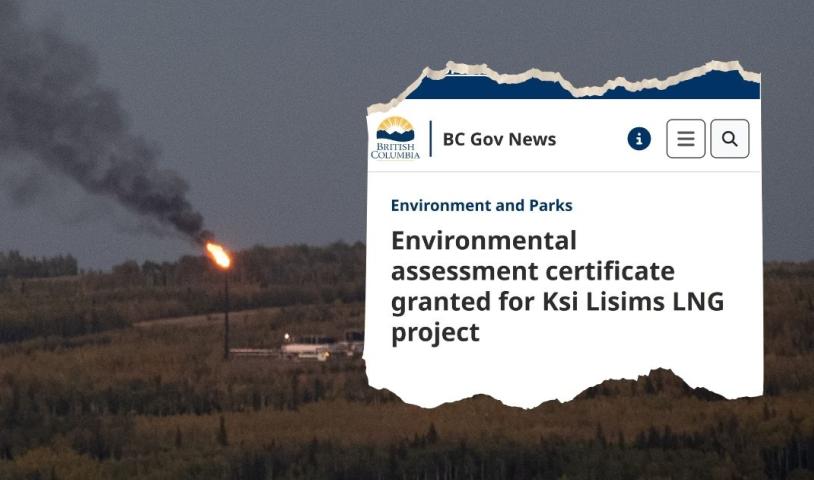'It affects all of us': Winnipeggers march in solidarity with Wet'suwet'en
Thursday, February 20, 2020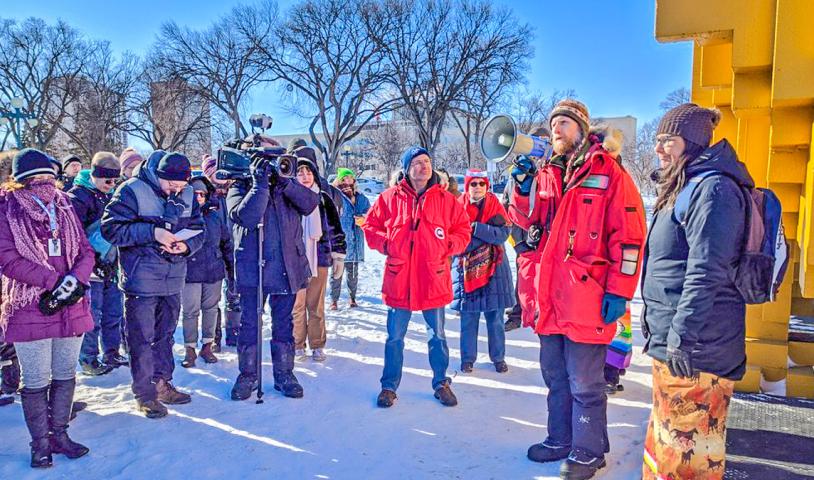
'If we come together as one voice, we are heard,' says First Nation Indigenous Warriors representative
A crowd of about 100 people took to the streets of Winnipeg Tuesday to stand in solidarity with Wet'suwet'en hereditary chiefs and supporters who are trying to stop the construction of a natural gas pipeline in northern B.C.
Clad in snow pants and parkas, the group marched from the Manitoba legislature down Osborne Street, and down York Avenue to the Manitoba Law Courts and back, led by Indigenous drummers and singers.
Winnipeg's Joseph Munro was there representing First Nation Indigenous Warriors.
WATCH | Why Winnipeggers are marching for Wet'suwet'en:
He said even though Wet'suwet'en territory is thousands of kilometres away, their fight is his also fight.
"If we come together as one voice, we are heard," he said. "That's why we come together and stand together in solidarity with Wet'suwet'en… what's happening there in Unis'tot'en."
Two weeks ago, the RCMP began arresting people trying to prevent the construction of the Coastal GasLink pipeline.
Marches in solidarity with those who identify as land defenders have been held across the country since in response.
Here in #Vancouver, it’s ten o’clock at night and one of the city’s biggest intersections is filled with drumming, song, a fire, sage, several hundred people, and love.
— Torrance Coste (@TorranceCoste) February 12, 2020
This is what a movement looks like.#WetsuwetenStrong #WetsuwetenSolidarity #bcpoli #cdnpoli #yvrpoli #yvr pic.twitter.com/UGyyiQJNkC
Others formed blockades affecting trains, including one just outside of Morris, Man. That was abandoned late Monday afternoon after a court injunction was served.
Eric Reder, the wilderness and water campaigner for the Wilderness Committee, was one of the speakers at the rally. He says advocating for the environment and fighting for Indigenous rights go hand in hand.
"The decisions that are made on the lands and waters and climate are most often made in Indigenous territories," he said.
"We can't talk about protecting nature, the thing that gives us life, without talking about how we ensure there are healthy Indigenous communities in conjunction."
Maureen Cooper, a University of Manitoba student took part in the rally with fellow student Sam Ripat.
"I've kind of just had enough of silencing issues like this. We're in the midst of a climate crisis and it's time to speak up," she said.
"It affects all of us."
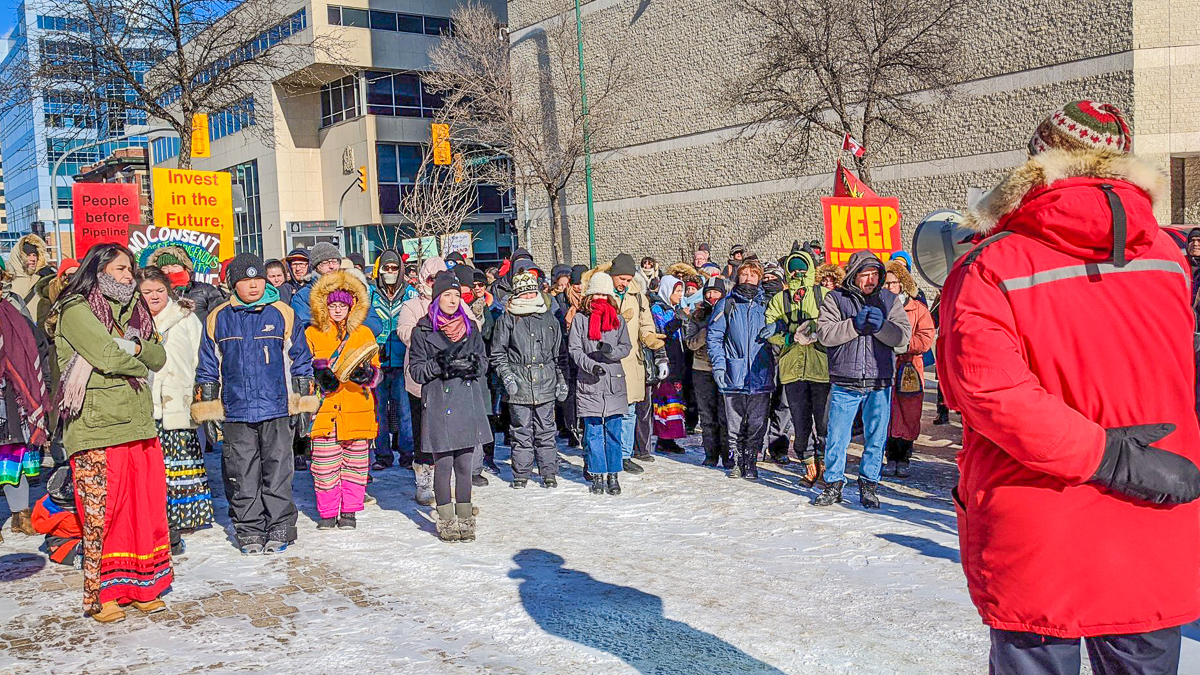
"This is an important cause for the entire country because we are on stolen land and the government, since colonization, has been oppressing these voices, silencing them, and this is just a continuation of it, Ripat added. "A lot of people are suffering."
Lisa Raven from Hollow Water First Nation is a member of Camp Morningstar, which was set up a year ago to oppose the extraction of silica sand for use in major fracking operations, also lent her voice to the cause.
Raven says she understands resource extraction projects can be divisive — even within Indigenous communities — and tries to understand all sides of the conflict.
"If you live on a reserve, opportunities for employment are difficult. I think that's all across the country. It tends to divide people in two corners," she said.
Raven added blockades, rallies, and camps like the one she's a part of can also prompt division, but the point is to get people to think about the issues that might not affect them directly.
"I think what they do is they bring awareness to people who are going about living their daily lives. It forces people to ask questions and make up their own mind based on what's out there."
To view the original article published by the CBC please click here.
